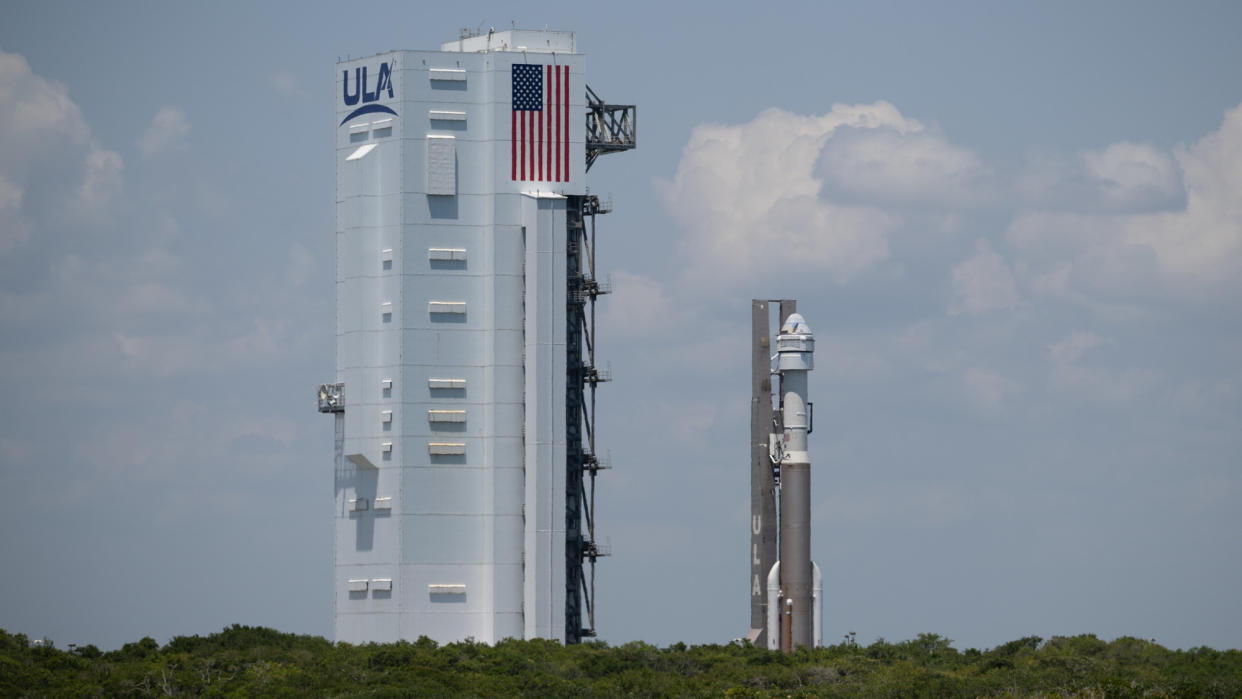Boeing's Starliner rolled off launch pad to replace 'buzzing' rocket valve (photo)

Boeing's Starliner capsule has left the launch pad.
Starliner and its rocket ride, a United Launch Alliance (ULA) Atlas V, rolled off the pad at Florida's Cape Canaveral Space Force Station today (May 8), heading to an assembly building at the site so scientists can replace a misbehaving valve in the launcher's upper stage.
The duo could be back soon, however: They're scheduled to launch no earlier than May 17, kicking off Starliner's first-ever astronaut mission, a trial run to the International Space Station (ISS) called Crew Flight Test (CFT).
Related: Boeing Starliner 1st astronaut flight: Live updates
CFT was originally supposed to launch on Monday night (May 6), but the mission team called things off about two hours before liftoff after noticing that an oxygen relief valve in the Atlas V's Centaur upper stage was opening and closing rapidly. This repeated action was audible; team members described it as a "buzzing."
The planned launch was then pushed to no earlier than Friday (May 10). However, that new target date became untenable after ULA decided that the buzzing valve needed to be replaced, an operation that required rolling the Starliner-Atlas V stack back to its integration facility.
If CFT does indeed launch on May 17, it will happen at 6:16 p.m. EDT (10:16 p.m. GMT). Whenever the mission indeed lifts off, you can watch the action live here at Space.com, courtesy of NASA.
RELATED STORIES:
— Boeing Starliner astronauts conduct dress rehearsal ahead of May 6 launch (photos, video)
— Boeing's Starliner spacecraft will not fly private missions yet, officials say
CFT will send NASA astronauts Butch Wilmore and Suni Williams to the ISS for a roughly eight-day stay. The mission is designed to certify Starliner for long-duration flights to the orbiting lab, which Boeing will fly under a $4.2 billion contract awarded by NASA's Commercial Crew Program in 2014.
SpaceX also received a similar deal, worth $2.6 billion. Elon Musk's company has already completed seven operational crewed missions to the ISS for NASA using its Dragon capsule and Falcon 9 rocket; it's in the middle of its eighth such flight, which launched in March.
